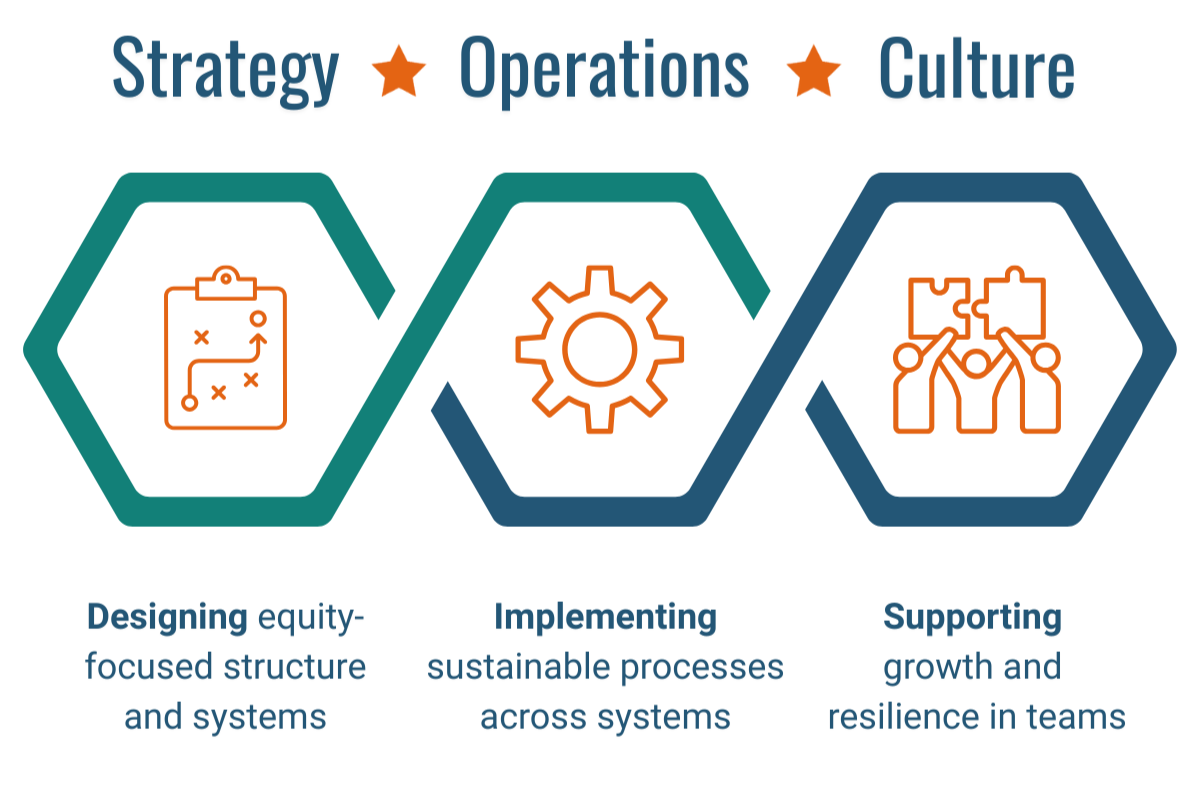With deep expertise and a relentless focus on impact, we create pathways that empower your workplace, elevate equity, and drive lasting transformation.

We believe that partnerships work best when everyone is working to their strengths. Our team fills in the gaps, using our cross-functional expertise to amplify yours. We offer flexible levels of engagement to meet you where you are – whether it’s providing thought partnership and advice, supported implementation, or hands-on management.
We offer a breadth of services, specializing in:
We provide personalized coaching and learning opportunities that support both personal and professional growth. Our coaches help individuals refine their leadership skills, navigate challenges, and develop emotional intelligence.
Our services provide more than just routine financial management—we deliver a comprehensive range of solutions tailored to to the specific needs of nonprofits, giving you confidence in your financial stewardship.
We help your team live its values every day.
We help your team grow, retain, and empower talent equitably. We provide a full suite of HR and team learning solutions tailored specifically for nonprofits, helping organizations build high-performing teams while ensuring compliance and fostering inclusivity.
We seek to gain a deep and comprehensive understanding of your organizational needs. In this process, we prioritize building solid relationships with your team.
We work collaboratively with you and your team to design solutions that will significantly impact your organization. We bring technical and cross-functional expertise and combine it with your team's knowledge and experience. Together, we plan for a sustainable and lasting impact.
We will support you every step of the way. We are an agile and flexible team that can adjust and work across the organization, reducing friction and tension through the implementation phase.
At Step Up: Equity Matters, we partner with mission-driven organizations to build more inclusive, equitable, and impactful workplaces. Through our comprehensive service offerings, we provide the tools and strategies necessary to foster meaningful change in strategy, operations, and organizational culture.

We tailor our programs to meet the specific needs and challenges of your organization.
We develop programs that foster equitable leadership, build high-performing teams, and enhance emotional intelligence.
We track progress and measure impact to ensure your investment pays off.
We create a culture of accountability and continuous learning for lasting impact.
From the spark of two transformative movements to more than a decade of impact, Step Up: Equity Matters has been a relentless force for change in workplaces across the nation. Our journey began in 2014 with a shared vision for equity and inclusion, uniting leaders from diverse sectors who believed in the power of community-driven solutions.